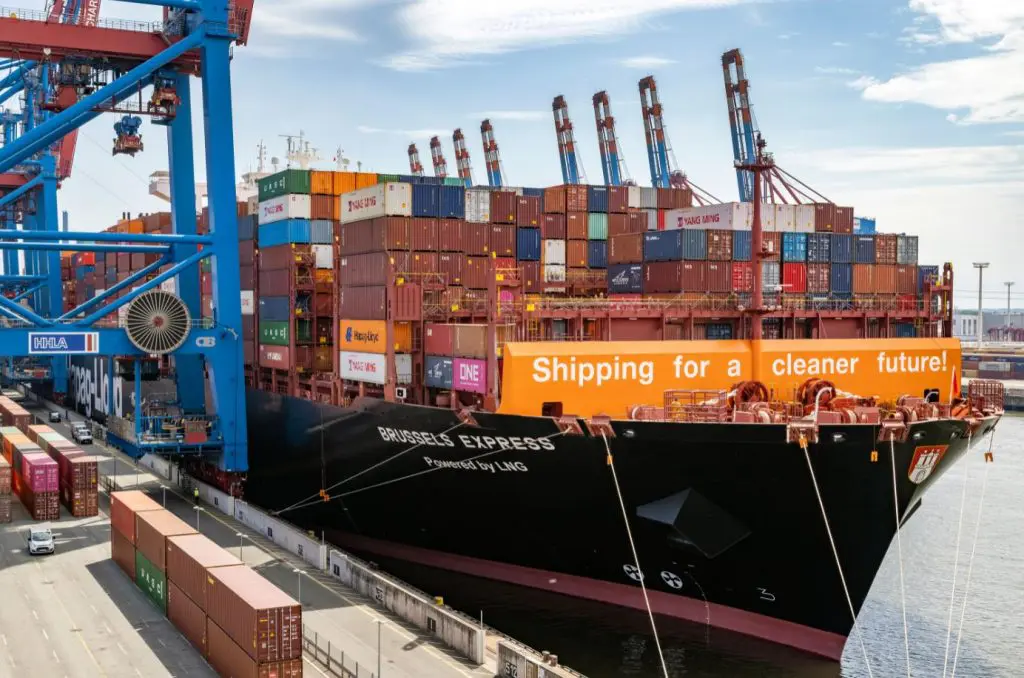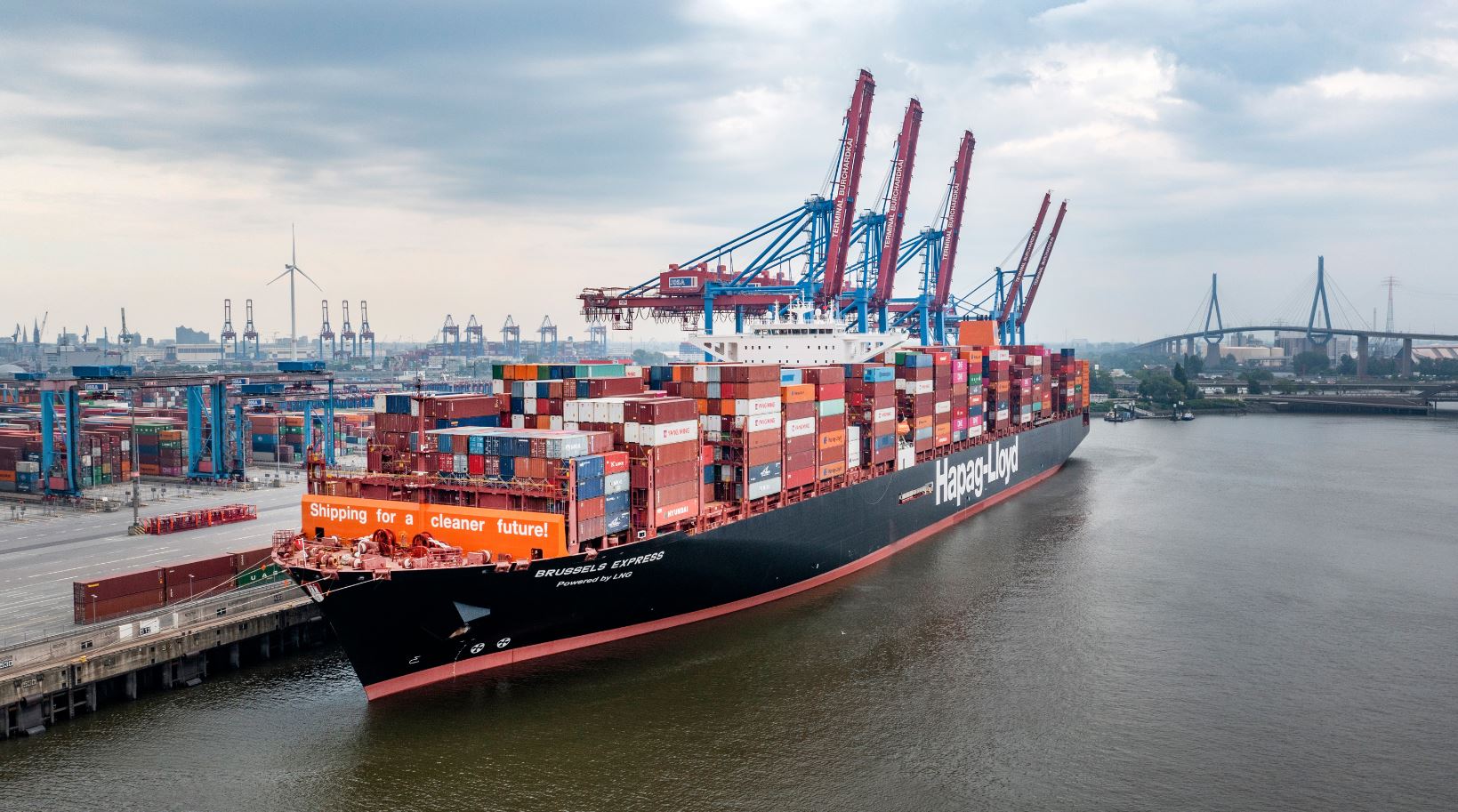Hapag-Lloyd’s converted LNG-powered containership Brussels Express has arrived in Germany’s Hamburg as part of the vessel’s maiden voyage from China.
The world’s first large containership LNG retrofit sailed into its home port of Hamburg for the first time during the weekend, Germany’s Hapag-Lloyd said in a statement.
To remind, LNG Prime reported on June 1 that the 15,000 TEU Brussels Express, previously known as Sajir, had completed its first bunkering operation in the Dutch port of Rotterdam. Shell’s 6,500-cbm Cardissa bunkered the vessel.
A spokeswoman said then that the operation was rather a trial. The vessel would complete its first commercial LNG bunkering on its second round voyage in Singapore.
The ship is not yet operating exclusively on LNG. Hapag-Lloyd said in the statement on Monday it expects to complete the “final guarantee works” at the end of this round voyage.
In the future, the ship would bunker twice per round voyage: in Singapore and in Rotterdam.

“LNG is currently the most promising fuel”
Hapag-Lloyd put back the vessel in service on its Europe-Far East trade on April 1, following the completion of conversion works at China’s Huarun Dadong yard.
Moreover, the vessel now features a GTT 6,700-cbm LNG fuel tank but also MAN dual-fuel propulsion. It will primarily sail on LNG with low-sulphur fuel oil as a backup.
“The fact that a retrofitting of this scale had never been done before meant that we faced numerous challenges – from the planning to the implementation. We have broken new ground with the conversion, and we will now be testing it very precisely in real-world operation,” said Richard von Berlepsch, managing director fleet management at Hapag-Lloyd.
“Fossil LNG is currently the most promising fuel on the path towards zero emissions. The medium-term goal is to have CO2-neutral shipping operations using synthetic natural gas (SNG),” he said.
Hapag-Lloyd is one of the world’s largest liner shipping companies. The firm operates a fleet of 241 containerships with a total transport capacity of 1.7 million TEU.

